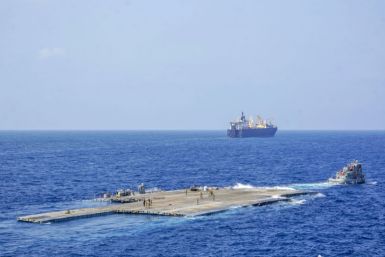Analysts Say Australia’s Supermarket Price War to Last Longer
The fruit and vegetable price war between Australian supermarket giants Coles and Woolworths may be a boon to consumers, but a bane to farmers.
Depending on which side they are on, the price war could either be good news for shoppers or bad news for growers of fresh produce, according to analysts' forecast. That is because the analysts believe that the battle of the price tags - started in 2011 on milk, bread, toilet paper and detergent - would likely be prolonged.
The analysts based their forecast on Woolies having the market clout to place indefinite pressure on Coles as the two grocers battle it out for the number one slot. On Thursday, number two Coles appeared to have gained the upper hand with its report of a higher December quarter sales growth rate compared to Woolworths.
The almost level playing field between the two rivals could be seen in a comparison of prices made by News.com.au of 23 items sold in the two groceries. Some of the goods, such as 420 grammes of Edgell sweet corn, had the same price tag at $1.95. Others had a difference of as little as 20 cents for 425 grammes of Sirena tuna sold for $5.79 at Woolies and at $5.59 in Coles.
For the basket of 23 similar goods, the total bill for the Woolworths shopper was $64.94 while it was $64.22 for the Coles shopper. The difference of 72 cents in favour of Coles was considered by analysts as minimal which would result in an extended price war between the two retailers.
The fear of negative impact by the steep discounts on fresh produce on the long-term prospects for Australia's agriculture sector had several groups seeking the appointment of an overseer for the supermarket industry.
However, Coles rejected the idea of another watchdog.
"I think the ACCC (the Australian Competition and Consumer Commission) have got very extensive powers and if they've got some real concerns that can be backed up with empirical support, they will investigate extremely thoroughly," ABC quoted Coles Chief Executive Ian McLeod.
Despite the strong growth in sales registered by Coles, the Wesfarmers Group which recently purchased Coles, is weighed down by weaker sales at its discount department stores Target and Kmart. For the December quarter, Wesfarmers' sales went up 5.4 per cent to $26.4 billion compared to a year ago.
Coles sales registered a 3.7 per cent growth on like-for-like items which was the result of shoppers purchasing more items. For the Christmas shopping season, Coles registered more than one million extra transactions, disclosed Wesfarmers Managing Director Richard Goyder.
"There's been an opportunity for our businesses to lead in terms of value.... We are driving this in an environment where consumers are more cautious and are shopping with real purpose," The Herald Sun quoted Mr Goyder.
Coles' marketing strategies such as the recent 50 per cent discount on certain veggies and fruits is apparently working as analysts agreed that at this point Coles in winning customers away from Woolies without the need to open outlets in the same location as its main competitor.






